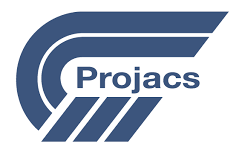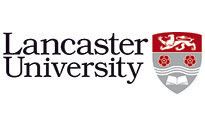
Using Microsoft Project for Effective Project Management
Course ID: 2511100101429ESH
Course Dates : 10/11/25 Course Duration : 5 Studying Day/s Course Location: London, UK
Language: Bilingual
Course Category: Professional and CPD Training Programs
Course Subcategories: Leadership and Management Excellence
Course Certified By: ESHub CPD & LondonUni - Executive Management Training
* Professional Training and CPD Programs
Leading to:
Executive Diploma Certificate
Leading to:
Executive Mini Masters Certificate
Leading to
Executive Masters Certificate
Certification Will Be Issued From :
From London, United Kingdom
Course Fees: £5,120.30
Vat Not Included in the price. VAT may vary depending on the country where the course or workshop is held.
Click to Pay
Date has passed please contact us Sales@e-s-hub.com
Course Information
Introduction
Project management has become an indispensable discipline across industries, driving efficiency, accountability, and successful outcomes in increasingly complex environments. Among the myriad tools available to project managers, Microsoft Project stands out as a robust platform designed to streamline planning, resource allocation, and progress tracking. The ability to harness this tool effectively can significantly enhance a professional’s capacity to manage projects of varying sizes and complexities. With organizations striving to meet tight deadlines and optimize resources, mastering Microsoft Project is not merely advantageous—it is essential.
One of the key challenges faced by project managers today lies in aligning team efforts with strategic goals while maintaining transparency and adaptability. Without proper tools or methodologies, even well-conceived plans can falter due to miscommunication, inefficient resource utilization, or inadequate monitoring. Microsoft Project addresses these gaps by offering features such as Gantt charts, task dependencies, and real-time reporting, which foster clarity and collaboration. By integrating established frameworks like Agile and Waterfall methodologies into its functionality, the software ensures compatibility with diverse project management approaches.
Consider the case of a global IT firm tasked with developing a new software product within six months. Initially, the team struggled with overlapping deadlines and unclear priorities. After implementing Microsoft Project, they were able to visualize timelines, allocate resources more efficiently, and monitor milestones in real time. This transformation underscores how mastering tools like Microsoft Project can turn potential chaos into structured success—a lesson applicable across sectors ranging from construction to healthcare.
The benefits of acquiring proficiency in Microsoft Project extend beyond individual skill enhancement. For organizations, it translates to improved productivity, reduced costs, and enhanced client satisfaction. On a personal level, professionals equipped with this expertise often find themselves better positioned for career advancement, as they contribute directly to organizational goals. Furthermore, the growing emphasis on data-driven decision-making in project management amplifies the importance of tools that facilitate precise tracking and analysis.
Industry trends reveal a consistent demand for tech-savvy project managers who can seamlessly integrate digital solutions into their workflows. According to the Project Management Institute (PMI), employers are seeking candidates who not only understand traditional project management principles but also possess hands-on experience with advanced software platforms. This course bridges that gap by combining theoretical foundations with practical exercises, ensuring participants emerge ready to tackle real-world challenges.
Ultimately, this training program is crafted to empower professionals to navigate the intricacies of modern project management confidently. Whether you’re overseeing small-scale initiatives or leading enterprise-wide transformations, Microsoft Project serves as a versatile ally. Through engaging lessons, interactive sessions, and actionable insights, participants will develop the competence needed to leverage this powerful tool effectively, thereby elevating both their careers and organizational performance.
Objectives
By attending this course, participants will be able to:
Analyze project requirements and translate them into actionable tasks using Microsoft Project.
Design comprehensive project schedules incorporating critical path analysis and task dependencies.
Apply resource management techniques to allocate and optimize workforce and materials efficiently.
Evaluate project progress through built-in reporting tools and adjust plans based on real-time data.
Implement best practices for risk mitigation and contingency planning within the software environment.
Synthesize project data to communicate results and recommendations to stakeholders effectively.
Utilize advanced features such as baselines, earned value analysis, and custom fields for enhanced project control.
Who Should Attend?
This course is ideal for:
Project managers, team leaders, and coordinators responsible for overseeing deliverables and timelines.
Professionals working in industries such as IT, engineering, construction, and healthcare, where project management plays a pivotal role.
Consultants seeking to expand their service offerings by adding Microsoft Project expertise to their skillset.
Individuals preparing for certifications like PMP® or CAPM®, who require hands-on experience with industry-standard tools.
This course is particularly valuable for those aiming to transition into project management roles or enhance their existing capabilities. While prior exposure to basic project management concepts is beneficial, no previous experience with Microsoft Project is required, making it suitable for beginners and intermediate learners alike.
Training Method
• Pre-assessment
• Live group instruction
• Use of real-world examples, case studies and exercises
• Interactive participation and discussion
• Power point presentation, LCD and flip chart
• Group activities and tests
• Each participant receives a 7” Tablet containing a copy of the presentation, slides and handouts
• Post-assessment
Program Support
This program is supported by:
* Interactive discussions
* Role-play
* Case studies and highlight the techniques available to the participants.
Daily Agenda
Daily Schedule (Monday to Friday)
- 09:00 AM – 10:30 AM Technical Session 1
- 10:30 AM – 12:00 PM Technical Session 2
- 12:00 PM – 01:00 PM Technical Session 3
- 01:00 PM – 02:00 PM Lunch Break (If Applicable)
- Participants are expected to engage in guided self-study, reading, or personal reflection on the day’s content. This contributes toward the CPD accreditation and deepens conceptual understanding.
- 02:00 PM – 04:00 PM Self-Study & Reflection
Please Note:
- All training sessions are conducted from Monday to Friday, following the standard working week observed in the United Kingdom and European Union. Saturday and Sunday are official weekends and are not counted as part of the course duration.
- Coffee and refreshments are available on a floating basis throughout the morning. Participants may help themselves at their convenience to ensure an uninterrupted learning experience Provided if applicable and subject to course delivery arrangements.
- Lunch Provided if applicable and subject to course delivery arrangements.
Course Outlines
Introduction to Microsoft Project
Overview of Microsoft Project interface and navigation.
Understanding project phases and life cycles.
Setting up project calendars and defining working hours.
Creating a new project file and entering initial details.
Day 2:
Task Management Fundamentals
Defining tasks, durations, and predecessors.
Establishing task relationships and dependencies.
Identifying the critical path and understanding its significance.
Managing constraints and deadlines effectively.
Day 3:
Resource Allocation and Optimization
Adding resources (work, material, cost) to your project plan.
Allocating resources to tasks and resolving overallocations.
Leveraging resource pools for multi-project environments.
Tracking resource usage and availability reports.
Day 4:
Monitoring and Reporting Progress
Updating task statuses and tracking actual vs. planned progress.
Generating visual reports using Gantt charts and dashboards.
Conducting variance analysis and adjusting baselines.
Communicating project updates to stakeholders effectively.
Day 5:
Advanced Features and Best Practices
Configuring custom fields and formulas for tailored metrics.
Applying earned value analysis to assess project performance.
Managing risks and contingencies within Microsoft Project.
Reviewing best practices for maintaining organized project files.



















































